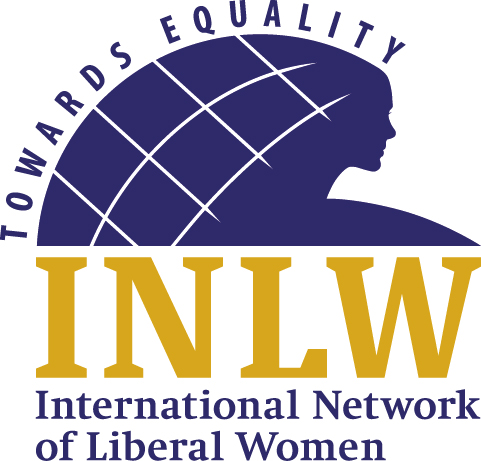At the end of the 2nd World War, liberals from several European countries met in Brussels looking for possibilities to develop a liberal organisation that could help in the reconstruction of democracy in Europe.
They called a meeting, that was attended by delegates of 19 countries. The meeting took place in Oxford from the 10 to the 14 of April 1947. This was the constituent assembly of Liberal International. From the 60 delegates who attended the meeting, only three were women, one was from Italy, and two were from the United Kingdom. A provisional Executive was composed of 13 members: 12 men and 1 woman: Nina Ruffini, from Italy.
The Congress of Oxford adopted the Liberal Manifesto in 1947, which still is, with modifications and additions, the charter of principles that guides Liberal International. The Liberal Manifesto of 1947 only makes one reference to women. In Part 1, the last item in point 3 mentions, among the fundamental rights of citizens, “equality of rights between men and women”.
In Ottawa, in 1979, a resolution was adopted calling “all the member parties of the Liberal International (to) commit themselves to an active, internal Affirmative Action programme designed to correct the current under-use of women’s talents…”.
We had to wait until 1980, on the occasion of the Berlin Congress of LI, to see a first full resolution on the status of women. The Congress called upon LI member parties and groups “to take measures, so that women can obtain better possibilities for full participation”. The Resolution recommended:
The special sub-committee was never established. Between 1980 and 1990, women meetings took place at every congress of LI, a day before the opening of the Congress.
After the Congress of 1980, it was decided that the Liberal International was in need of an update concerning its structure and financial matters. A Planning Committee, whose chair was Beatrice Rangoni Machiavelli, was appointed in order to find possible solutions. The Committee presented its proposals to the Congress in Rome, in 1981. The recommendation of widening its political base, increasing contacts with the Third World, and improving its infrastructure was adopted. The Congress adopted as well the “Liberal Appeal of Rome”, where the women’s cause is present; in part II, III and IV.
II. Liberal Principles and Present Realities
9-f) Liberals consider it is essential to strive for equality of men and women. Women and men should have the same opportunity to participate in the development of their cultures.
III. Institutional Issues in Modern Democracies
13-f) The status of women in society, the disabilities and disadvantages imposed upon them are fundamental questions of concern to everybody. The unequal status of women is wasteful of the talents of half the population when the development of society demands the contribution of all citizens.
IV. Educational and Cultural Issues
17-c) (to ensure) that women no longer receive less education than men during or after their school years.
In 1997, the 50th anniversary of the creation of Liberal International was held in Oxford. The Congress adopted the Liberal Agenda for the 21st Century.
The Liberal Agenda points out that the central values of Liberalism are the following:
The Agenda emphasises “equal rights and opportunities for women and men, and that the advance of Liberalism since 1947 can be showed by “a growing national and international awareness of the human rights of women and children”. In the chapter “the challenge of poverty and social exclusion”, the Agenda points out that “poverty, unemployment, and social exclusion blight the lives of men and, especially, of women, children and the elderly.”
The Resolution “The World Today” adopted by the Congress in Brussels includes a strong statement for the equal participation of women at all levels of the public life. Under the heading “Human Rights and Democracy” it is stated: “In general, this Congress calls upon governments to take action on the following issues… It is not sufficient to ratify treaties, it is also necessary to suggest concrete mechanisms. Elimination of All Forms of Discrimination Against Women can be achieved by means of enabling women’s equal representation in all the decision-making positions in Parliaments, Courts of Justice, Local authorities, Boards of directors of public companies, and other public and governmental institutions. In order to achieve equal opportunities, affirmative action must be implemented as temporary measure to achieve full equality.”

 Visit our Facebook page
Visit our Facebook page